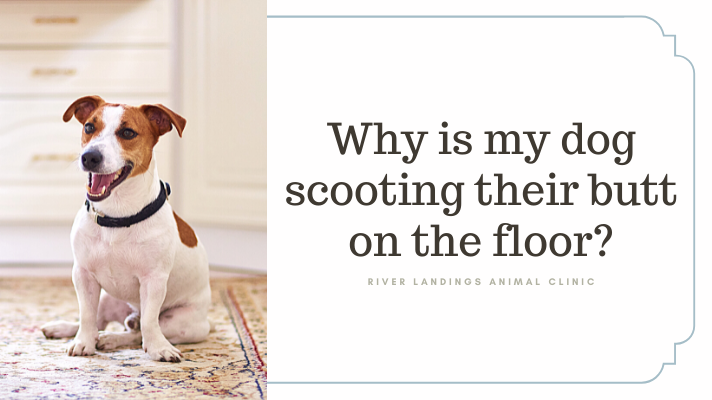Why is my dog scooting their butt on the carpet?
It could be an anal sac disorder.
Dogs have anal sacs on either side of the anus that fill with fluid produced by the anal glands. This fluid is a scent marker that’s useful for communicating with other dogs, such as to delineate territory.
Anal sac disorders involve impaction of anal sac fluid, inflammation of the sac(s), and abscess of the sac(s), which can lead to a dog having a ruptured anal gland. Impaction is the most common disorder of the anal glands. Small breed dogs like Toy Poodles, Shih Tzus, and Chihuahuas are more predisposed than other breeds.
Symptoms and Types
Dog is scooting
Straining to defecate
Itching/Scratching
Tail chasing
Discharge from the anal glands
Licking and biting around the anus
Causes
Conformation (body shape)
Allergies
Chronically soft feces
Recent bout of diarrhea
Constipation
Excessive glandular secretions
Poor anal muscle tone
Anal gland tumor
Diagnosis
Your veterinarian will conduct a complete physical exam on your dog, taking into account the background history of symptoms and possible incidents that might have precipitated this condition.
You will need to give a thorough history of your dog's health, the onset of symptoms, and possible incidents that might have led to this condition. Your veterinarian may order a fecal test, blood count and chemical profile, and a urinalysis to rule out other causes of disease.
The anal sacs are considered enlarged if they are easily palpable during the physical exam. The normal clear or pale yellow-brown secretion will have turned to a thick, pasty brown fluid if the anal glands have been impacted. Abscessed anal sacs will have a red-brown exudate, and show signs of swelling and redness. The anal sacs may also be clearly ruptured.
Your veterinarian will try to gently empty your dog’s anal sacs. Based on the consistency and color of the material, and the difficultly involved in expressing it, your veterinarian will choose a treatment.
Treatment
If the anal sacs were full, but the material was normal and easily cleaned, your veterinarian may discuss a diet change or supplements. Some anal gland issues are responsive to added fiber or different types of dog food. If there is evidence of infection, your veterinarian will prescribe an antibiotic.
Abscessed anal sacs will be opened to the exterior near the anus in order to allow drainage. The anal sacs will then be cleaned and flushed, and prescription antibiotics will be infused into them.
If your dog is suffering from chronic anal sac infection, the anal sacs may need to be surgically removed. However, if your dog is suffering from severe fistulation (abnormal openings in the anal sacs), it may benefit from oral cyclosporine therapy.
During treatment, your veterinarian may recommend a diet or supplements to loosen the consistency of the feces. This may make it less irritating to defecate so that your dog does not develop constipation.
Hear From Us Again
Don't forget to subscribe to our email newsletter for more recipes, articles, and clinic updates delivered straight to your e-mail inbox.
Related Categories:

